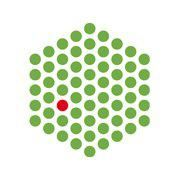 CABANA workshop: Advanced RNAseq and network analysis in genomics
CABANA workshop: Advanced RNAseq and network analysis in genomics
Date: 6 - 9 November 2019
This course will provide training on RNAseq data production and interpretation. The course starts with a brief introduction to RNA-seq and discusses quality control issues. Next, we will present the alignment step, quantification of expression and differential expression analysis. We will dedicate some time to analysing and constructing networks from expression data and using the Gene Ontology for gene set enrichment test. Finally, we will cover some aspects of Meta-metrics in networks (high-dimensional data).
Contact: Derrin Crawte - [email protected]
Venue: Instituto de Biología Agrícola de Mendoza / Institute of Agricultural biology (IBAM), Almirante Brown 500, Chacras de Coria
Region: Mendoza
Country: Argentina
Postcode: M5528AHB
Organizer: European Bioinformatics Institute (EBI)
Host institutions: Instituto de Biología Agrícola de Mendoza / Institute of Agricultural biology (IBAM)
Target audience: This course is aimed at researchers from Masters-level upwards within Latin America who are working with and/or generating their own plant genomic and transcriptomic datasets. Prerequisites: Some basic computational or previous bioinformatics experience is required for this workshop, particularly using the UNIX operating system (basic command line skills) and R. You may find the resources below useful: Basic introduction to the Unix environment: www.ee.surrey.ac.uk/Teaching/Unix Introduction and exercises for Linux: https://training.linuxfoundation.org/free-linux-training Basic R concept tutorials: www.r-tutor.com/r-introduction Important: All participants must bring a laptop for the course. We will use a virtual machine (VM) provided by instructors for the course practical sessions. All laptops must be of 64-bit architecture with any Operating System and have at least 60 GB free space. Please also note: this course will be taught in Spanish, however the trainers are fluent in English and can offer language support where feasible. A number of travel fellowships are available for this course - early-stage researchers and researchers from underrepresented groups are especially encouraged to apply for CABANA travel fellowships. You can apply for travel fellowships via the course application form.
Capacity: 30
Event types:
- Workshops and courses
Scientific topics: RNA-Seq, Molecular interactions, pathways and networks, Systems biology
Activity log

 EMBL-EBI
EMBL-EBI
